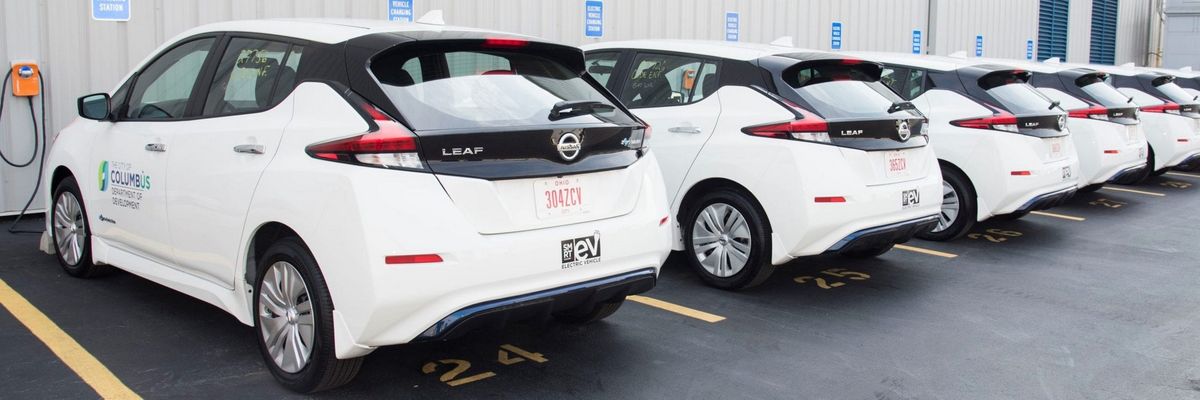Replacing the roughly 900,000 gas-guzzling light-duty automobiles in state and local government fleets with electric vehicles over the next decade could save U.S. taxpayers nearly $11 billion in lifetime expenses while reducing pollution and planet-heating emissions, according to a report published Tuesday.
The report—entitled Electric Vehicles Save Money for Government Fleets—was published by U.S. PIRG Education Fund, Environment America Research & Policy Center, and Frontier Group and contains a state-by-state breakdown of how much money could be saved on fuel, maintenance, insurance, and depreciation costs by purchasing electric vehicles to replace retired gasoline-powered fleets.
According to the report, the biggest savings—more than $8.5 billion—would be on fuel costs, followed by nearly $6.9 billion saved on maintenance, over $3.5 billion in depreciation costs, and $1.1 billion on insurance.
"Buying, fueling, and maintaining gas- and diesel-fueled fleet vehicles is a big expense for governments—especially when gas prices are high," Diane Brown, executive director of the Arizona PIRG Education Fund and a co-author of the report, said in a statement. "Shifting to electric vehicles can save money for taxpayers by significantly reducing fuel and maintenance costs, while also improving air quality."
Greenhouse gas emissions would plummet by nearly 26 billion tons, a 63% drop compared with a scenario in which state and local governments purchase fossil-fueled vehicles to replace their old ones.
Fleet electrification would also reduce emissions of volatile organic compounds and nitrogen oxides, which when combined form ground-level ozone—better known as smog.
"For more than a century, pollution from cars and trucks has made our air unhealthy to breathe," said Doug O'Malley, director of Environment New Jersey Research and Policy Center and a co-author of the report. "It's long past time to change that and local and state governments can lead by example in electrifying our vehicles."
"Electric vehicles are no longer some distant dream. They are here today and ready to save taxpayers money and help clear our air."
While the report acknowledges that replacing retiring fossil-fueled fleets would require "significant upfront investment," federal assistance including the Commercial Clean Vehicle Incentive—under which qualifying organizations can get up to $7,500 per light-duty vehicle when they buy electric—could soften the initial financial blow.
At the federal level, the Biden administration in 2021 announced its intent to electrify the government's fleet, while last December the U.S. Postal Service said it would buy at least 66,000 electric vehicles to replace its aging gasoline-powered fleet after sustained pressure from climate campaigners.
"Electric vehicles are no longer some distant dream. They are here today and ready to save taxpayers money and help clear our air," said Frontier Group associate director and senior policy analyst and report co-author Tony Dutzik. "Every year, new models and types of EVs come on the market that can do more of the jobs state and local governments require. The time for governments to plan a transition to electric vehicles is now."




